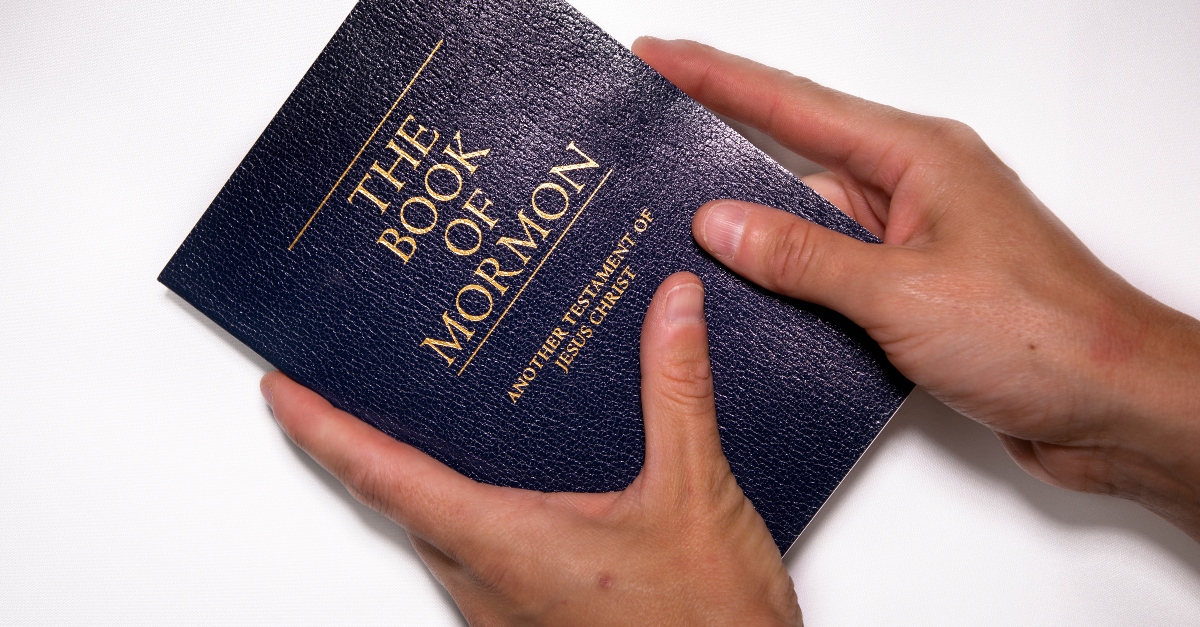
On the surface, the Mormon Sacrament Prayers sound like prayers you might hear in a Christian Church. After all, Christians and Mormons use much of the same terminology and follow some of the same practices. However, the meaning and implications of their terms are vastly different.
With that in mind, here are some things we should know about Mormon Sacrament Prayers.
What Are the Sacrament Prayers?
In Mormonism, the Sacraments are defined as the bread and wine (now replaced by water in Mormon services) that Jesus shared at the Last Supper. The Sacrament Prayers are said as a blessing before the weekly partaking of these elements.
In her book, The Mormon Mirage: A Former Member Looks at the Mormon Church Today, award-winning author and speaker Latayne C. Scott discusses the origins and purpose of the sacrament prayers. “Another procedure for an important ordinance of the church is found in 3 Nephi 18:5-29. Here we find the proper mode of administering the sacrament, as the Mormons refer to the Lord’s Supper. Its outstanding features are:
1) it is only to be partaken of by baptized believers;
2) it is to be in remembrance of Christ;
3) it seals a covenant by the believer to do God’s will;
4) it is to be partaken of often;
5) it is not to be partaken of unworthily;
6) it must be administered by someone holding the proper priesthood authority; and
7) it is to consist of bread and wine (in contrast to water that is used in LDS services today).
These were the instructions given to the Nephites by the resurrected Christ Himself, but Moroni (supposedly writing four hundred years later) decided that Christ had left out an essential part of the instructions. So this Nephite prophet in Moroni chapters 4 and 5 gives the exact wording of the prayers to be said over the bread and wine (which no doubt gave Joseph Smith some problems in late 1830 when he received a revelation telling him to use water in the sacrament instead of wine).”
What do the Sacrament Prayers Sound Like for Christians?
Christians generally refer to this taking of the bread and wine as Communion or the Lord’s Supper.
The prayers mention God the Father, Jesus Christ the Son, and the Spirit.
Trinity: Christians view these three as one God—equal members of the Trinity.
God the Father: God is our Spiritual Father who has always been God, without beginning or end.
God the Son: Jesus Christ is God’s only begotten Son who was with God in the beginning (John 1) and took on human form through being born of Mary.
God the Holy Spirit: Like the Father and Son, the Holy Spirit has always existed and has equal standing with the other two members of the Trinity.
Photo Credit: © Unsplash/Michael Hart

What do the Sacrament Prayers Mean to Mormons?
While Mormons believe in the figures they call God the Eternal Father, His Son Jesus Christ, and the Spirit (or Holy Ghost as He’s often called), their beliefs differ regarding who each of these are.
Trinity: Mormons don’t believe in the Trinity. Instead, they see God the Father as being God, while the other two serve as His counselors.
God the Father: They believe God was once human like the rest of us but that He underwent spiritual progression to become God. According to their teachings, we can, and should, follow this same process of transformation. In addition, they believe God is our physical father and that we were physically born of Him in eternity before we were sent to be born again on earth.
The Son: They view Jesus as humanity’s physical older brother who was selected for the role of Savior.
The Holy Ghost: Like God, Mormons believe the Holy Ghost progressed to arrive at his eternal status where he serves as God’s counselor and helper.
How Is Mormonism Different from Orthodox Christianity?
In addition to differences in how they view the Godhead, Mormonism is distinct from Christianity in many other fundamental ways as well.
Origins
Christianity began with the coming of Jesus. His life, teachings, death, and resurrection were witnessed by thousands of people. Those who believed in and followed the ways of Christ were eventually called Christians.
Mormonism is a much newer religion that is largely based on the unwitnessed and unproven testimony of a teenage boy. Joseph Smith Jr. claimed that when he was 14 years old, God the Father came to him and told him all the churches were wrong. A few years later, Smith said he was visited by an angel named Moroni who led him to find engraved golden plates in the woods near his home in western New York. Although no one else has ever seen these golden plates, Smith claimed he translated their “Reformed Egyptian” language into English, which then became The Book of Mormon. In 1830, Smith, at the age of 24, published that book and founded The Church of Jesus Christ of Latter Day Saints (more commonly known as Mormonism).
Authority
Christianity views the Bible as being the ultimate source of authority on God’s Word. Any teachings must align with these scriptures in order to be considered valid.
Mormonism views the Bible as one of four authoritative texts which include The Book of Mormon, The Doctrines of the Covenant, and The Pearl of Great Price. They acknowledge the Bible as being valid as long as it’s “correctly” interpreted by their leaders, who are seen as possessing ultimate, infallible authority in their teachings.
Salvation
Christianity teaches that human life begins here on earth. Everyone sins, but when Jesus died on the cross and rose again, he forgave us of our sins and brought us the free gift of salvation. “For by grace you have been saved through faith; and that not of yourselves, it is the gift of God; not as a result of works, so that no one may boast” (Ephesians 2:8–9, NASB).
Mormonism teaches that humans were spiritually born by God the Father on a planet near the great star, Kolob and were then sent to earth to undergo the process of spiritual progression, whereby they can regain their eternal status and become gods. Jesus' death and resurrection is effective for salvation only if a person has lived a righteous enough life, as defined by the Mormon church.
In Summary
While Christians may read the Mormon Sacrament prayers and see them as good reminders of Christ’s death on the cross to forgive our sins and bring salvation, Mormons read them as a way to reestablish their covenant with Jesus as defined by the Mormon church and solidified through their baptism into the church. In keeping with their works-based religion, they are taught that if they obey God’s commands, then their sins are forgiven and they can continue on in their eternal progression to become gods.
Many religions and prayers sound incredibly similar to the teachings of Christianity. However, if you look closely at the other religion’s beliefs, you can discover key differences that enable you to discern which teachings do and don’t align with the Christian God’s Bible. One of the most revealing differences comes when you ask what Jesus asked His disciples in Matthew 16:13-17. “But who do you say that I am?” Jesus is God, and any religion that teaches otherwise is not of Him. So while these prayers, and many others, may sound no different than the prayers said by countless Christians in countless churches, be aware that in their origin and intended meaning, they are not, by definition, Christian.
Sources:
The Mormon Mirage: A Former Member Looks at the Mormon Church Today
Photo Credit: © Getty Images/Lizzie Maher
Jenny Fulton is a wife, mother, writer, and member of Wholly Loved Ministries who enjoys studying God’s Word and sharing what she has learned with others. She is the author of Princess Lillian and Grandpa’s Goodbye, A Princess’ Guide to the Alphabet, and Striving for Unity: a Study on 1 Corinthians (upcoming release). An enrolled member of the Navajo Nation, Jenny developed a keen interest in language and cultures. In 2007, she graduated from Grace University with a B.S. in Bible, a B.S. in elementary education, and an endorsement in K-12 ESL. For the next seven years, Jenny worked as a teacher in a variety of cultural and educational settings, both abroad and in the United States. Her days are now spent raising her three young daughters and writing as much as time and opportunity allows.








